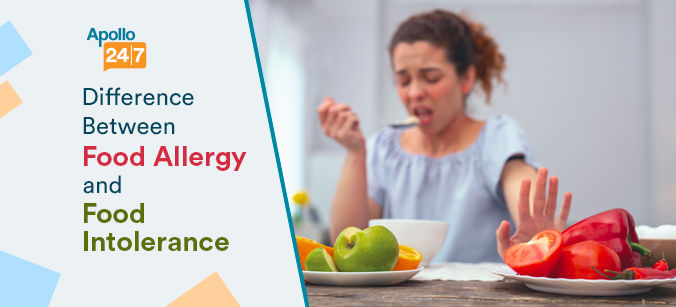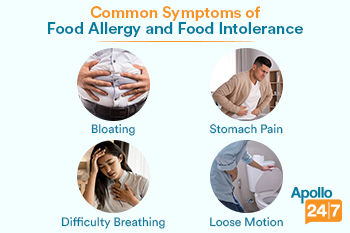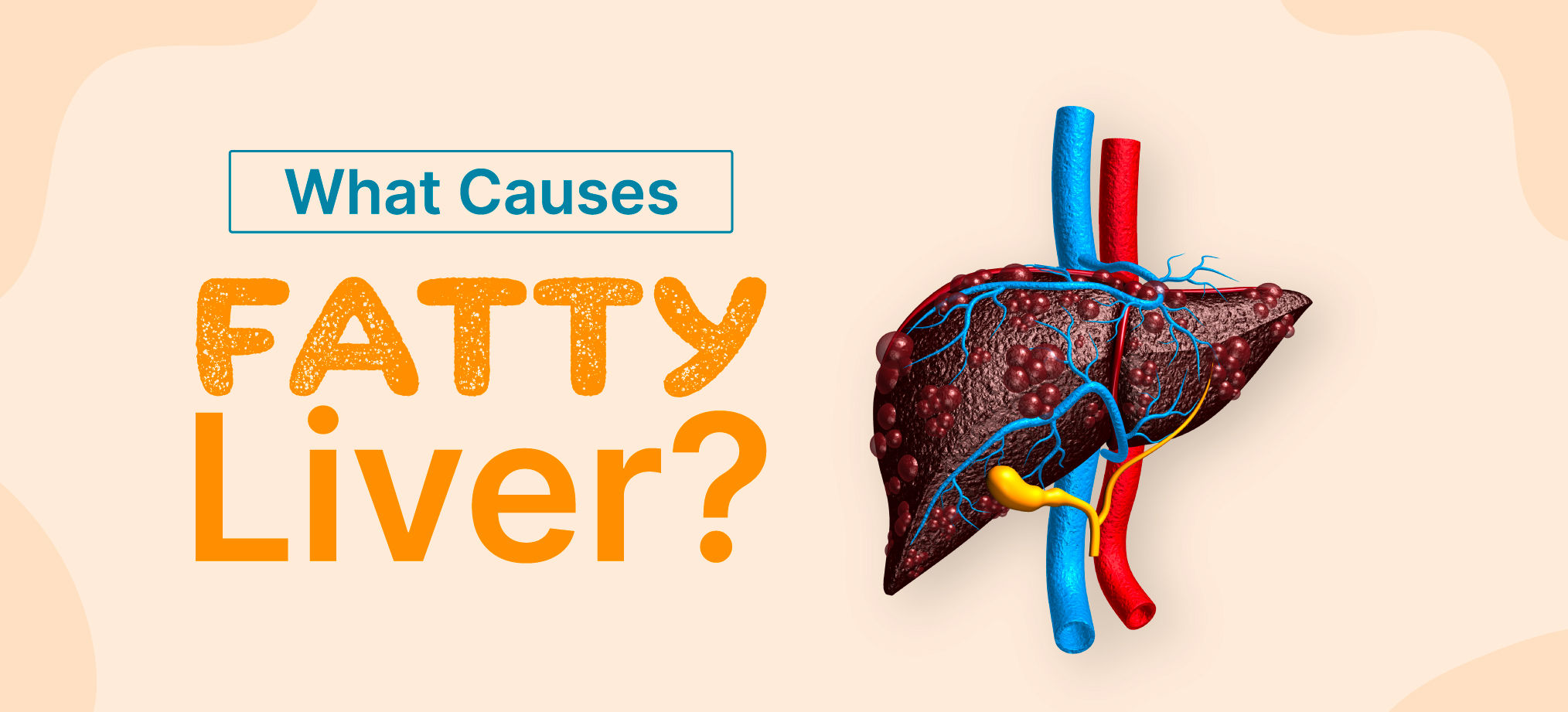General Health
Food Allergy Vs Food Intolerance: What is the Difference?
4 min read
By Apollo 24|7, Published on - 19 August 2022, Updated on - 18 October 2022
Share this article
0
1 like

Did you know food intolerance affects up to 20% of the population? Enzyme deficiencies could cause specific food sensitivities such as low amine oxidase activity resulting in histamine intolerance and Sucrase-isomaltase activity resulting in reduced tolerance to sugars and starch. Also, are you aware there is a difference between food intolerance and food allergy? Before we delve into the difference between food intolerance and food allergy.
What is food intolerance?
Food intolerance is the difficulty in digesting certain foods or reaction to ingredients in food items which causes unpleasant physical side effects within a few hours or a day after consuming particular foods.
What is a food allergy?
Food allergy is also known as hypersensitivity, similar to food intolerance; however, it activates an immune response to seemingly non-pathogenic substances. As a result, the body instantly produces antibodies specific to the antigens.
How can we differentiate between food allergies and food intolerance?
- Food allergies can flare even when taken in small quantities. In comparison, food intolerance can happen with standard portion sizes.
- Food allergies are treated with antihistamines and epinephrine shots. In contrast, severe food intolerance is dealt with by avoiding the food altogether.
- The reaction time of food allergies is 1-2 hours. In the case of food intolerance, the reaction time could be 30 minutes to 48 hours.
Common food intolerance triggers:
Lactose (a sugar found in milk), casein (a protein found in milk) and gluten ( seed protein).
Common food allergy triggers:
Peanuts, cashew nuts, almonds, poultry, meat, sea-fish, eggs, wheat, oats, barley, soybeans, mushrooms, cheese, brinjal, bioactive food chemicals (salicylic acid) and certain food additives.
Common food intolerance symptoms and food allergy symptoms
The food intolerance symptoms and food allergy symptoms are very similar. Hence, it is advisable to discuss with your doctor your symptoms to get a better diagnosis.
- Bloating
- Celiac disease
- Flatulence
- Stomach pain
- Rashes

- Breathing difficulties
- Nausea
- Heartburn
- Headache
- Irritability
- Nervousness
- Loose motions
- Urticaria
- Unintentional weight loss
What happens when you ignore food intolerance?
When food intolerance is ignored for a long time it may lead to inflammation of the gut and make the digestive system weaker. Hence, taking an allergy test is advisable. Once the allergens are known then people must limit or discontinue having those foods to prevent gut inflammation.
How do food allergies and food intolerance affect the gut?
Food allergy and food intolerance disrupt the gut microbiome and cause mild to severe gut inflammations. Since the gut microbiome plays an important role hence disruptions, changes or inflammations in the gut not only affect the gut but adversely affect other organs too as it is linked to a number of health problems such as severe chronic kidney disease, and mental health and digestive disorders.
Additionally, diet and lifestyle also have a huge impact on gut health. For example, physical inactivity and drinking too much alcohol are known to damage gut health often leading to poor quality of life.
What should one consume to improve gut health?
One should consume the following foods to improve gut health and keep food intolerance and food allergies at bay.
- Consume and experiment with a diverse range of food
- Limit alcohol and smoking
- Add prebiotics to your diet
- Eat more of a plant-based diet
- Prefer whole grains over refined foods
- Eat foods rich in polyphenols
- Sip green tea and chamomile tea
- For infants, mothers should try breastfeeding till 6 months
- Add fibrous fruits to your diet
In case of uneasiness after having certain foods, discontinue them after speaking you’re your nutritionist.
Takeaway
Research hints that there are 40 trillion bacteria in your body which actually helps process foods and help in digestion. Collectively they help in improving health and keep diseases at bay. However, there is a chance that one may suffer from food intolerance or food allergies which can alter the gut microbiome and also cause gut inflammation or a severe allergic response. Hence, don’t ignore signs and symptoms of food allergies and food intolerance.
Want to know more about food allergy and food intolerance from expert doctors, then click the below button.
Best Allergists and Immunologists
Medically reviewed by Dr Dhanunjay Reddy B.
General Health
Leave Comment
Recommended for you

General Health
How To Increase Hemoglobin? Know 6 Ways To Improve Your Levels
This blog highlights the significance of hemoglobin in the body and provides effective strategies to increase hemoglobin levels naturally. It explains the role of hemoglobin in oxygen transportation, carbon dioxide removal, and pH regulation. It also discusses the symptoms and causes of low hemoglobin levels and suggests dietary changes to boost hemoglobin.

General Health
Fatty Liver: What Is to Be Blamed, Fats or Carbs?
If you are diagnosed with fatty liver, the rest of your life goes into balancing the fat and carb portion in your diet. Go through this blog to learn the function of carbohydrates and fats, their contribution to fatty liver, and most importantly, some tips to reverse NAFLD.

General Health
Vocal Nodules and Remedies for Voice Hoarseness
Vocal nodules usually result from straining or overusing the voice, especially due to singing, shouting or talking loudly for long periods.
Subscribe
Sign up for our free Health Library Daily Newsletter
Get doctor-approved health tips, news, and more.
Visual Stories

Could There Be More to Your Snore?
Tap to continue exploring
Recommended for you

General Health
How To Increase Hemoglobin? Know 6 Ways To Improve Your Levels
This blog highlights the significance of hemoglobin in the body and provides effective strategies to increase hemoglobin levels naturally. It explains the role of hemoglobin in oxygen transportation, carbon dioxide removal, and pH regulation. It also discusses the symptoms and causes of low hemoglobin levels and suggests dietary changes to boost hemoglobin.

General Health
Fatty Liver: What Is to Be Blamed, Fats or Carbs?
If you are diagnosed with fatty liver, the rest of your life goes into balancing the fat and carb portion in your diet. Go through this blog to learn the function of carbohydrates and fats, their contribution to fatty liver, and most importantly, some tips to reverse NAFLD.

General Health
Vocal Nodules and Remedies for Voice Hoarseness
Vocal nodules usually result from straining or overusing the voice, especially due to singing, shouting or talking loudly for long periods.